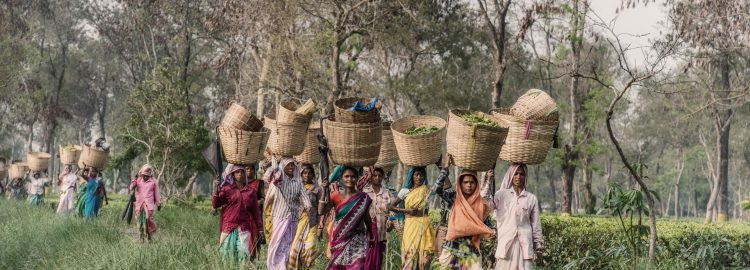A new GLO Discussion Paper finds that women who live in areas that were under direct British rule, compared to their counterparts, are better off in terms of almost all measures of women empowerment.

GLO Discussion Paper No. 1275, 2023
British Colonialism and Women Empowerment in India – Download PDF
by Nandwani, Bharti & Roychowdhury, Punarjit
GLO Fellow Punarjit Roychowdhury
Author Abstract: This paper examines the long-term link between British colonialism and women empowerment in India. We compare women’s contemporary economic outcomes across areas that were under direct British colonial rule with areas that were under indirect colonial rule. Controlling for selective annexation using a specific policy, we find that women who live in areas that were under direct British rule, compared to their counterparts, are better off in terms of almost all measures of women empowerment including employment, within-household decision-making, mobility, etc. We also document positive impacts of British colonialism on several drivers of women empowerment including education, fertility, marital age, gender norms, etc. While our study of the underlying transmission channels is challenged by data limitations, we argue that legal and institutional changes brought in by the British in favor of women and the West-inspired social reformation movement of the 19th century may be relevant to explaining this long-term link.
Featured image: Trevor-Cole-on-Unsplash
Journal of Population Economics (JOPE)
JOPE has CiteScore 9.2 (NEW – 2022, LINK) & Impact Factor 4.7 (2021, LINK)
JUST PUBLISHED
Vol. 36, Issue 3, July 2023: 26 articles on: Aspirations and preferences; Environment, Weather, Climate; Family; Fertility; Historical demography; Ageing, pensions, social security; Migration
https://link.springer.com/journal/148/volumes-and-issues/36-3
CALL FOR PAPERS
JOPE invites paper submissions for the following collections:
– Abortions
– Covid-19 and diseases
– Lifecycle fertility models
– Sexual and domestic violence
– Sexuality including LGBT issues
– Statistics & measurement of population economics
For more details and for examples of already published papers in these collections see:
https://glabor.org/collections-journal-of-population-economics-invites-paper-submissions-in-six-research-areas/
https://link.springer.com/journal/148/collections
JOPE Collections are a set of published papers on issues of significant relevance for the journal. Authors are continuously invited to submit their related work for evaluation stating their specific interest to contribute in the submission cover letter. JOPE Editors will treat those submissions with particular interest and speedy handling. Articles will be immediately published after final acceptance.

GLO Discussion Papers are research and policy papers of the GLO Network which are widely circulated to encourage discussion. Provided in cooperation with EconStor, a service of the ZBW – Leibniz Information Centre for Economics, GLO Discussion Papers are among others listed in RePEc (see IDEAS, EconPapers). Complete list of all GLO DPs – downloadable for free.
The Global Labor Organization (GLO) is an independent, non-partisan and non-governmental organization that functions as an international network and virtual platform to stimulate global research, debate and collaboration.
Ends;

